N.Y. Times under continued attack for anti-LGBTI article
Colin Stewart is a 45-year journalism veteran living in Southern…
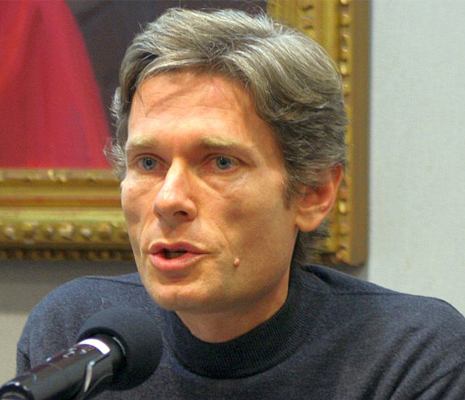
The New York Times has not backed off its damaging and inaccurate article of Dec. 20 about the alleged problems of U.S. support of LGBTI rights in Africa, but today it has published two letters to the editor that challenge the article’s accuracy.
The letter from Tom Malinowski, assistant secretary of the U.S. Department of State, (printed below) states that the $700 million that the Times said was spent to support “gay rights groups and causes” is actually the total U.S. spending for “public health programs that aid a broad range of individuals, including but not limited to L.G.B.T.I. persons.”
He also notes that the Times article “offers no real evidence” to support its claim “that discriminatory laws adopted in recent years are a reaction to American government pressure.”
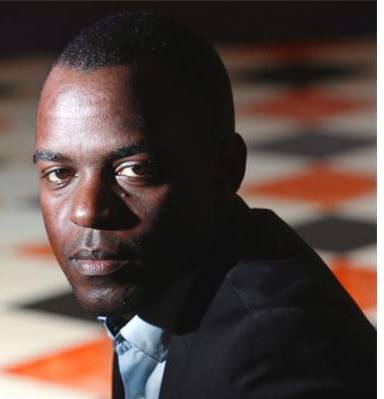
A second letter to the editor, from Frank Mugisha, executive director of Sexual Minorities Uganda, (also printed below) states, “The United States government by and large follows our lead before taking action on our behalf,” and those actions have been effective. He concludes, “Is there more violence now that L.G.B.T.I. people are more visible in Nigeria and elsewhere? Maybe, but it is homophobia, not funding, that is at fault.”
The newspaper did not print a further letter from Ugandan human rights activist Kikonyogo Kivumbi, who represents key affected populations on the Global Fund’s Uganda board. His letter (printed in full below) states, “The U.S. funding shift away from bigotry and toward support for HIV programs serving LGBTI and other vulnerable communities, is a lifeline, not a liability.”
The shift in U.S. policy, he says, has meant that “beneficiaries, especially LGBTI people bearing the brunt of the pandemic resulting from years of their own countries neglect, are accessing care, treatment and support.”
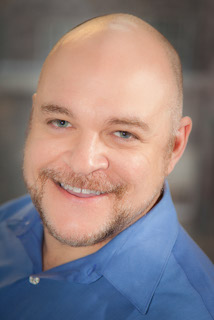
In addition, Andrew Park, director of international programs at the Williams Institute in Los Angeles, wrote an article for the Huffington Post that was headlined, “New York Times Fuels Myth of Gay Affluence.” He stated that “the U.S. government probably spends less than $7 million of its own dollars per year on global LGBT issues. That amount is roughly half the annual budget of the [anti-gay] Family Research Council.” He writes:
“In the case of LGBT people, the claim that LGBT groups have received $700 million builds a myth of affluence. The stereotype that LGBT people are rich, well-funded, well-educated and selfish has been used by those opposing LGBT equality as a reason to deny LGBT people their human rights.
“President Museveni of Uganda has written on his view that people are recruited into the gay lifestyle by monetary bribes and financial enticement.
“US Supreme Court Justice Scalia has reasoned that LGBT have high disposable incomes and are therefore undeserving of constitutional protection.
“When officials in the World Bank suggested that LGBT people should be part of its anti-poverty programs, critics responded that LGBT issues have no role in the World Bank’s mission.
“All these statements fly in the face of the growing evidence that LGBT people face wage disparities and poverty at levels higher than their non-LGBT counterparts.”
To read Park’s full commentary, visit the Huffington Post.
Previously, Nigeria’s Coalition for the Defense of Sexual Rights condemned the Times for “lack of journalistic rigour.” It added:
“We categorically state that US and other western nations support for LGBT rights in Nigeria has actually brought our issues to the front burner of politics and policy making. In fact to a large extent, it has contributed to the visibility that we enjoy as a community and using that visibility to strengthen our advocacy.”
To read the coalition’s full statement, see this blog’s article of Dec. 24 titled, “Nigerian activists protest harmful, flawed N.Y. Times coverage.”
Letter to the editor from Tom Malinowski, Assistant Secretary of State for Democracy, Human Rights and Labor

“American Support for Gay Rights May Leave Africans Vulnerable” (front page, Dec. 21) does a disservice to Africans and others around the world defending human rights, including those of lesbian, gay, bisexual, transgender and intersex persons.
Violence and legislation targeting L.G.B.T.I. persons long predates American engagement on this issue, and the article offers no real evidence that discriminatory laws adopted in recent years are a reaction to American government pressure.
It cites that we have spent more than $700 million to support “gay rights groups and causes” globally when that figure mostly encompasses public health programs that aid a broad range of individuals, including but not limited to L.G.B.T.I. persons.
American policy, which is supported by many countries, is simply to assert that people should not be subject to violence or discrimination simply because of who they are. “Do no harm” is the most important principle guiding our efforts, which are shaped in consultation with local communities.
And these local efforts have often been successful — including a campaign by Ugandans that culminated in the striking down of a repressive anti-L.G.B.T.I. law by their country’s Constitutional Court in 2014. We will continue to stand by those whose only crime is to demand the same human rights as everyone else.
Letter to the editor from Frank Mugisha, executive director of Sexual Minorities Uganda
The underlying narrative of this article about anti-gay sentiment in Nigeria is that L.G.B.T.I. Africans are pawns of Western interests.
While Uganda is not Nigeria, I have found quite the opposite to be true in my country. The United States government by and large follows our lead before taking action on our behalf. And when security interests are on the line, it often takes significant pressure to get foreign governments to act on any human rights issue.

Here in Uganda, American donors paid attention only when American evangelicals like Scott Lively, Rick Warren and Lou Engle preached vitriol against gays, which prompted Ugandan legislators to propose the death penalty for gays in 2009.
In Uganda, as L.G.B.T.I. people, we sounded the global alarm because lives were at risk with such proposed legislation, and funders waited for instructions from us. We advised the American government on how to minimize harm, and it listened.
There will always be backlash to activism. That is not news.
Instead of elevating the significance of American influence, it would have been better if the article had focused on African politicians who employ any narrative at their disposal — including “neocolonial” ones — to maintain their power at the expense of scapegoated minorities like L.G.B.T.I. people, regardless of what the United States may, or may not, do.
Is there more violence now that L.G.B.T.I. people are more visible in Nigeria and elsewhere? Maybe, but it is homophobia, not funding, that is at fault.
Letter to the editor from Kikonyogo Kivumbi, elected representative of key affected populations on the Uganda health policy board of the Global Fund
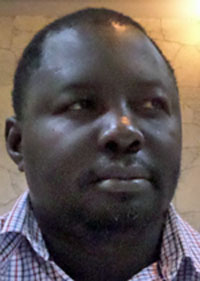
This letter is in response to the December 20 article entitled: “U.S. Support of Gay Rights in Africa May Have Done More Harm than Good.”
While it may be true that some Nigerian LGBTI activists may be under pressure as a result of the US government policy to link foreign aid to the support for gay rights in African countries, the writer fails to highlight the successes of US foreign aid.
Uganda has one of the harshest environments in the world for gay or alleged gay persons. The US government’s new pivot to public support for gay rights is the right foreign policy direction. The United States contributes more than 70% of Uganda’s National HIV/AIDS response through its PEPFAR [President’s Emergency Plan for AIDS Relief] program. The PEPFAR program has succeeded in making reforms at country level and in Washington to focus on fighting the pandemic, not the people based on their sexual orientations, gender identity or expression.
Since PEPFAR shifted its funding toward supporting LGBTI and other highly HIV-burdened and underserved communities, it is the first time ever in the history of PEPFAR that beneficiaries, especially LGBTI people bearing the brunt of the pandemic resulting from years of their own countries neglect, are accessing care, treatment and support. It is the first time ever a publicly self-identifying queer person is representing fellow LGBTI persons on the Global Fund Board in Uganda, influencing public health programmes.
On December 17, Ugandan gay community made an unprecedented move at a gala dinner organized by Sexual Minorities Uganda in Kampala to publicly thank the Ugandan government for making health accessible to everyone without discrimination. The gay community also honored publicly U.S. diplomats posted to Kampala Mission and people who have openly spoken out against hatred.
It’s true that both Nigeria and Uganda are sovereign independent nations with a mandate to draft their own laws to govern their people. However, these laws should conform to state obligations under International Human Rights Laws and protocols adhered to by both countries that advance human dignity. Such laws should also be in line with ordinary people’s aspirations to live in a free and democratic societies. The anti-gay laws in Uganda and Nigeria, and a wave of similar such laws/bills across the continent fueled by American evangelical Christian individuals and institutions, cannot replace the will of African people— to live in peace, unity and dignity.
Besides, while those sovereign African countries do exercise their independence and autonomy, the United States is also an autonomous nation with a right to comment on injustices, inhumane treatment of people overseas in bilateral partner countries. Gay persecution, murder, intimidation, torture and cruel inhumane treatment subjected to African gay people for being who they are not United States values; neither are they Christian values.
The United States also has a right to make it clear that U.S. taxpayers’ federal dollars in support of human well-being overseas, also supports human dignity. African homosexuals must be treated like any other human being in Africa. The U.S. has the sovereign right to deny funding to groups that wage a war of death, murder, persecution on African LGBTI people.
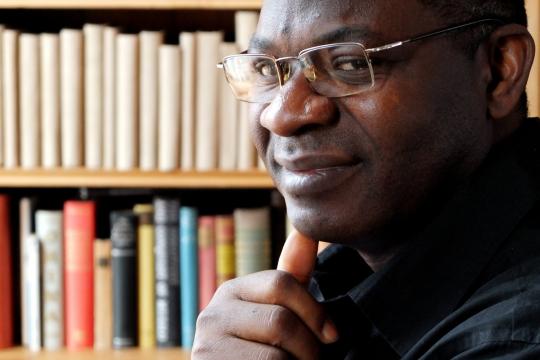
The article [in the New York Times] quotes Rev. George Ehusani, former Secretary General of the Catholic Secretariat of Nigeria, suggesting that Nigerian Catholic charities had stopped applying for American government grants that promote gay rights. This is exactly what should be. People promoting murder and persecution, including the Islamic State of Iraq and Levant, should not qualify for U.S. federal dollars.
African LGBTI people are rising up. It is not true as Rev. Kapya Kaoma, an Anglican priest from Zambia, suggests in your article, that African LGBTI activists are caught up in a U.S. culture war. More accurately, we are shedding an importation of homophobia and bigotry from Britain in its 19th century Penal Code, copied and pasted into African British colonial law books. As a citizen of Zambia, a former British colony, Rev. Kaoma is well aware that many African pre-colonial societies never persecuted, humiliated nor murdered gay people as the Europeans did.
Take the ill-fated example of the Inter Religious Council of Uganda (IRCU), a consortium of all religious groups in Uganda to promote peace, reconciliation, and good governance. This institution, bringing together Catholics, Muslims, Adventists and Evangelical worshipers, has been a recipient of US government federal funds to fight HIV/AIDS — until recently, when the US withheld its funds and redirected them to other institutions. For quite some time, leaders of these faiths have been at the forefront of pushing for mass murder of Ugandan homosexuals. They actively supported the passage of the now annulled Anti Homosexuality Act 2014 in Uganda, including calls to imprison all homosexuals on an island in Lake Victoria.

The IRCU’s influence was a result of U.S. federal-funding-caused gross failures in Uganda’s National HIV/AIDS response. There is now a realization that such lack of a human-rights-based approach cannot work in the fight against HIV. In Uganda, more than 70% of national health output is met by faith-based or -linked medical institutions. In some remote areas, there are not government-supported health facilities at all, apart from those run by the church. Yet, IRCU leadership continued its faith-based policy and discrimination among patients attending its U.S.-supported health infrastructure by denying condoms distribution or HIV prevention interventions and care services.
Rather than supporting the likes of IRCU — groups striving to normalize and further institutionalize LGBTI persecution — African countries and Washington allies should continue to embrace human rights, and human dignity for all. The USD $700 million, mentioned in the article, helps draw attention and redress the danger and neglect we suffer at the hands of our governments and religious institutions. It also must be clarified that the $700 m was not only in the service of LGBTI people; rather it was allocated to all populations highly burdened by HIV and traditionally underserved.
The U.S. funding shift away from bigotry and toward support for HIV programs serving LGBTI and other vulnerable communities is a lifeline, not a liability.
Related articles
- Nigerian activists protest harmful, flawed N.Y. Times coverage (Dec. 24, 2015, 76crimes.com)
- “U.S. Support of Gay Rights in Africa May Have Done More Harm Than Good (Dec. 20, 2015, New York Times)
- Tortured in Gambia: LGBTI people, journalists, activists, clergy (September 2015, 76crimes.com)
- Human rights defenders urge respect for LGBTI Africans (May 2015, 76crimes.com)
- Goal: Boost safety, effectiveness of LGBTI rights defenders (September 2014, 76crimes.com)
- UNHCHR alarmed at LGBT arrests, detentions in Gambia (November 2014, 76crimes.com)
- African Commission backs LGBT rights (May 2014, 76crimes.com)




Thanks for sharing.
How appalling that the NY Times should be so blatant in its ignorance and promotion of bigotry. What is the cause, I wonder? The only people we know that are being paid are Ugandan “pastors”, who then use the money to shore up their own power-base by promoting violent and murderous homophobia amongst their followers. Why did they not do an investigative report on that?
Reblogged this on Fairy JerBear's Queer/Trans News, Views & More From The City Different – Santa Fe, NM and commented:
Taking on the New York Times for its continuing belief that LGBTQIA activism has made things worse for LGBTQIA Africans.